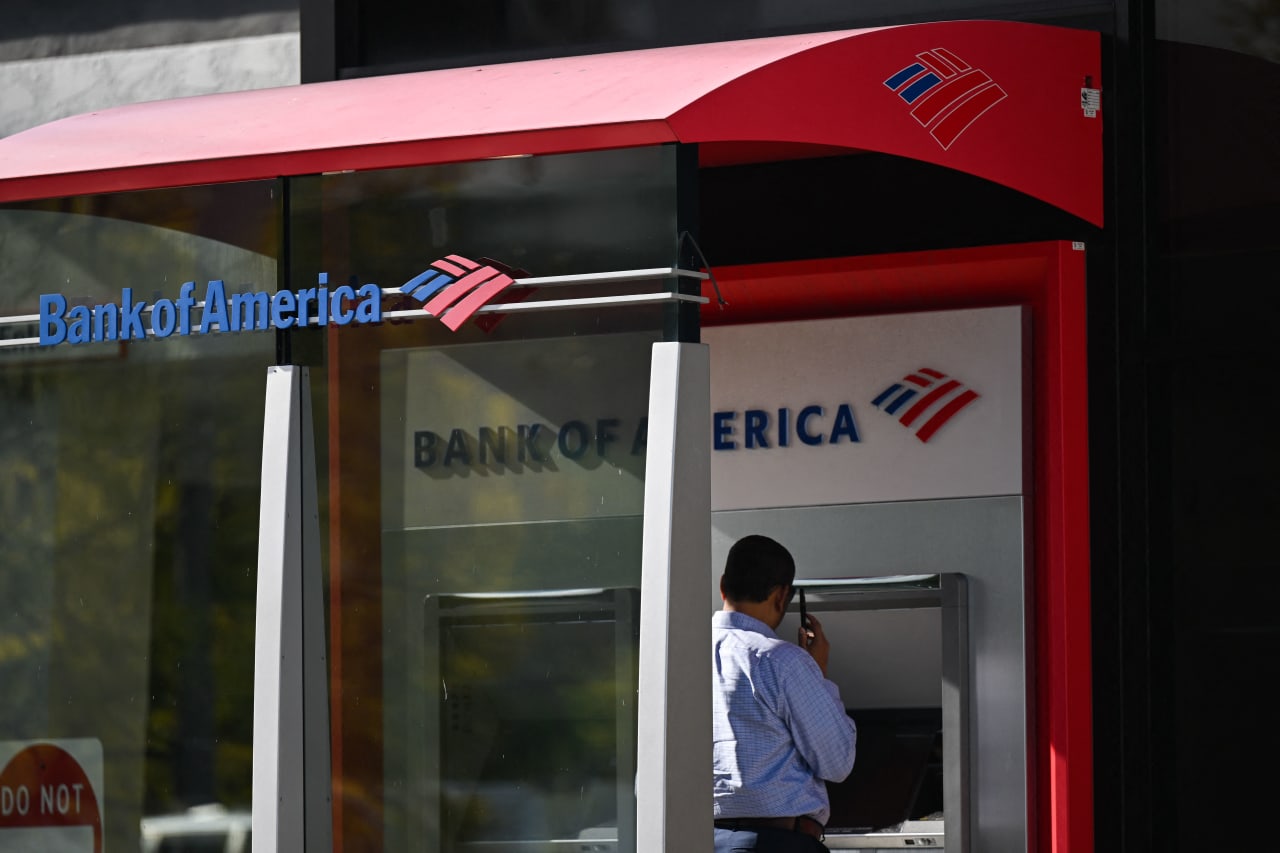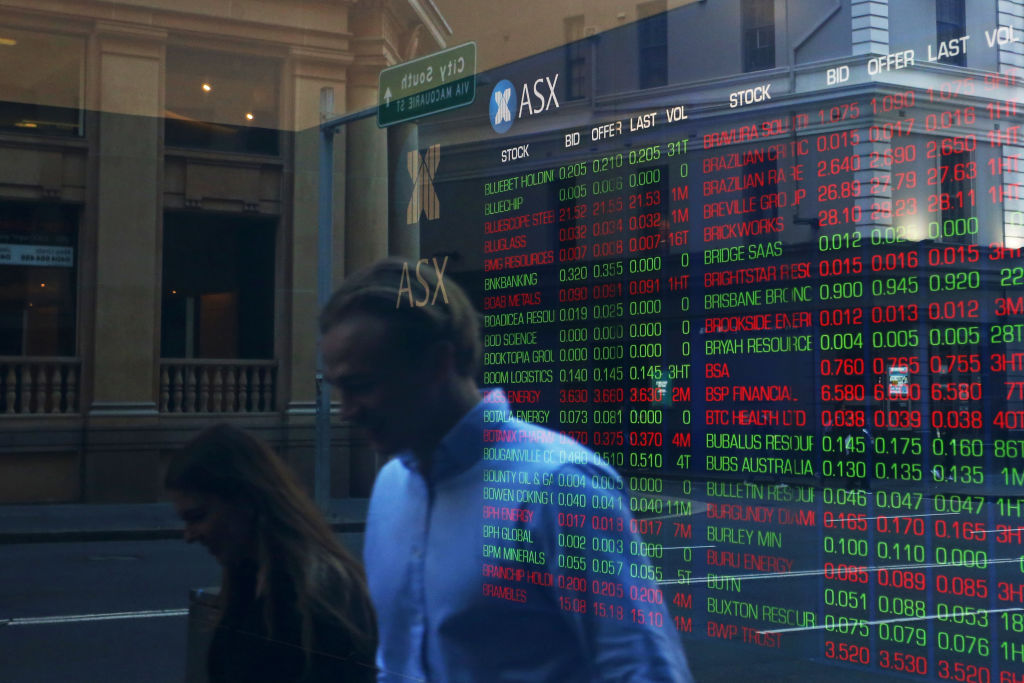China’s Deepening Housing Problems Spook Investors
Stocks in Hong Kong and mainland China drop after developer Country Garden flags more debt problems
China’s latest property crisis is threatening to spill over into the broader economy, worrying investors and causing a broad market selloff.
Chinese stocks fell in Hong Kong and mainland China on Monday, with real-estate developers, electric-vehicle manufacturers and other companies in economically sensitive sectors declining the most. The Hang Seng Index, which is loaded with Chinese companies, dropped 1.6%, taking its year-to-date loss to 5.1%. China’s CSI 300 of large-cap stocks fell 0.73%, and is also in the red for 2023.
The financial struggles of Country Garden Holdings, China’s top surviving privately run developer, have been front-and-centre since it missed interest payments on two U.S. dollar bonds a week ago. The property giant said over the weekend that trading in 11 of its yuan-denominated domestic bonds has been suspended, and that it intends to discuss repayment plans with investors. Country Garden’s Hong Kong-listed shares, which had been relegated to penny-stock status last week, fell another 18%on Monday.
China’s property sector has gone from being a major contributor to the country’s overall growth to a drag on its economy. New home sales increased in the first few months of 2023, providing a glimmer of hope that the worst of the housing downturn was over. The market turned in April, and nationwide sales at China’s top developers have slumped since. Country Garden’s latest problems are likely to turn off potential home buyers, further delaying a housing recovery.
Data released last week showed that China was slipping into deflation. Households, which have racked up high levels of savings, are also borrowing less.
Chinese banks extended the equivalent of $47.8 billion in new loans in July, down nearly half from the same month a year ago. It was also the lowest monthly total in more than a decade, according to data provider Wind. The July figures reflected slightly higher corporate lending and a drop in lending to households.
The loan data was “a big letdown,” as it reflected a lack of demand for borrowing, said May Ling Wee, a Chinese equities portfolio manager at Janus Henderson Investors. “Animal spirits are very low in China, and the government may need to do some pump-priming,” said Wee.
China’s economic troubles are also weighing on its currency. The offshore yuan depreciated past 7.28 to the U.S. dollar on Monday, and is close to its weakest level this year.
The country is scheduled to release a barrage of economic data on Tuesday, including monthly updates for real-estate investment, factory output and retail sales.
Problems are also cropping up in other financial-asset classes in China. Three publicly listed companies said in recent days that they didn’t receive payments they were promised on wealth-management products sold by Zhongrong International Trust, which is part of Zhongzhi Enterprise Group, a large domestic Chinese conglomerate. The missed payments are making investors worried about China’s sprawling trust industry, which has been a source of funding for property developers in the past.
Country Garden admitted to having liquidity problems last week and said it expects to post a big first-half loss. A default by the 31-year-old developer could have a bigger impact on China’s economy than the slow-motion fallout from China Evergrande Group’s debt crisis that began in 2021, some economists predict.
The company withstood the earlier slump that took down Evergrande and Sunac China, which together with Country Garden had been China’s three biggest privately run developers. “Country Garden’s default would mean a complete reshuffle and reorganisation of China’s real-estate industry,” said Wang Shengzu, global head of asset management at Haitong International.
When Evergrande defaulted on its international debt, China’s economy was in much better shape. The country was enjoying a boom in exports, and global investors widely believed that growth and domestic demand were being suppressed by its strict Covid-19 pandemic restrictions. China has since lifted those restrictions, but its economy has sputtered.
Before the downturn, Country Garden’s annual contracted sales were close to that of Evergrande’s by total value, but the former’s larger presence in China’s less prosperous cities meant it sold more homes at cheaper prices.
Country Garden also has a lot of unfinished property projects, as it was common for Chinese developers to sell partially built homes along with commitments to complete them in a few years. The company’s contract liabilities, a proxy for its unfinished projects, totalled the equivalent of $92.3 billion at the end of 2022, according to Country Garden’s last financial report.
The property sector is at a critical juncture, said Larry Hu, chief China economist at Macquarie Group. Plunging sales are a result of weak consumer confidence, and it is going to be hard for non-state-owned developers to survive in the absence of government help, he added. “Policy is the only game in town,” he said, referring to expectations that Chinese authorities will act to stop the market’s continued slide.
Shares of China’s homegrown electric-vehicle manufacturers dropped Monday, after Elon Musk’s Tesla cut prices in the country for two versions of its top-end Model Y car. Domestic rival BYD declined 6.1% in Hong Kong, while Nio, XPeng and Li Auto fell 2% to 3%.
 Copyright 2020, Dow Jones & Company, Inc. All Rights Reserved Worldwide. LEARN MORE
Copyright 2020, Dow Jones & Company, Inc. All Rights Reserved Worldwide. LEARN MORE
This stylish family home combines a classic palette and finishes with a flexible floorplan
Just 55 minutes from Sydney, make this your creative getaway located in the majestic Hawkesbury region.
When will Berkshire Hathaway stop selling Bank of America stock?
Berkshire began liquidating its big stake in the banking company in mid-July—and has already unloaded about 15% of its interest. The selling has been fairly aggressive and has totaled about $6 billion. (Berkshire still holds 883 million shares, an 11.3% interest worth $35 billion based on its most recent filing on Aug. 30.)
The selling has prompted speculation about when CEO Warren Buffett, who oversees Berkshire’s $300 billion equity portfolio, will stop. The sales have depressed Bank of America stock, which has underperformed peers since Berkshire began its sell program. The stock closed down 0.9% Thursday at $40.14.
It’s possible that Berkshire will stop selling when the stake drops to 700 million shares. Taxes and history would be the reasons why.
Berkshire accumulated its Bank of America stake in two stages—and at vastly different prices. Berkshire’s initial stake came in 2017 , when it swapped $5 billion of Bank of America preferred stock for 700 million shares of common stock via warrants it received as part of the original preferred investment in 2011.
Berkshire got a sweet deal in that 2011 transaction. At the time, Bank of America was looking for a Buffett imprimatur—and the bank’s stock price was weak and under $10 a share.
Berkshire paid about $7 a share for that initial stake of 700 million common shares. The rest of the Berkshire stake, more than 300 million shares, was mostly purchased in 2018 at around $30 a share.
With Bank of America stock currently trading around $40, Berkshire faces a high tax burden from selling shares from the original stake of 700 million shares, given the low cost basis, and a much lighter tax hit from unloading the rest. Berkshire is subject to corporate taxes—an estimated 25% including local taxes—on gains on any sales of stock. The tax bite is stark.
Berkshire might own $2 to $3 a share in taxes on sales of high-cost stock and $8 a share on low-cost stock purchased for $7 a share.
New York tax expert Robert Willens says corporations, like individuals, can specify the particular lots when they sell stock with multiple cost levels.
“If stock is held in the custody of a broker, an adequate identification is made if the taxpayer specifies to the broker having custody of the stock the particular stock to be sold and, within a reasonable time thereafter, confirmation of such specification is set forth in a written document from the broker,” Willens told Barron’s in an email.
He assumes that Berkshire will identify the high-cost Bank of America stock for the recent sales to minimize its tax liability.
If sellers don’t specify, they generally are subject to “first in, first out,” or FIFO, accounting, meaning that the stock bought first would be subject to any tax on gains.
Buffett tends to be tax-averse—and that may prompt him to keep the original stake of 700 million shares. He could also mull any loyalty he may feel toward Bank of America CEO Brian Moynihan , whom Buffett has praised in the past.
Another reason for Berkshire to hold Bank of America is that it’s the company’s only big equity holding among traditional banks after selling shares of U.S. Bancorp , Bank of New York Mellon , JPMorgan Chase , and Wells Fargo in recent years.
Buffett, however, often eliminates stock holdings after he begins selling them down, as he did with the other bank stocks. Berkshire does retain a smaller stake of about $3 billion in Citigroup.
There could be a new filing on sales of Bank of America stock by Berkshire on Thursday evening. It has been three business days since the last one.
Berkshire must file within two business days of any sales of Bank of America stock since it owns more than 10%. The conglomerate will need to get its stake under about 777 million shares, about 100 million below the current level, before it can avoid the two-day filing rule.
It should be said that taxes haven’t deterred Buffett from selling over half of Berkshire’s stake in Apple this year—an estimated $85 billion or more of stock. Barron’s has estimated that Berkshire may owe $15 billion on the bulk of the sales that occurred in the second quarter.
Berkshire now holds 400 million shares of Apple and Barron’s has argued that Buffett may be finished reducing the Apple stake at that round number, which is the same number of shares that Berkshire has held in Coca-Cola for more than two decades.
Buffett may like round numbers—and 700 million could be just the right figure for Bank of America.
This stylish family home combines a classic palette and finishes with a flexible floorplan
Just 55 minutes from Sydney, make this your creative getaway located in the majestic Hawkesbury region.






















